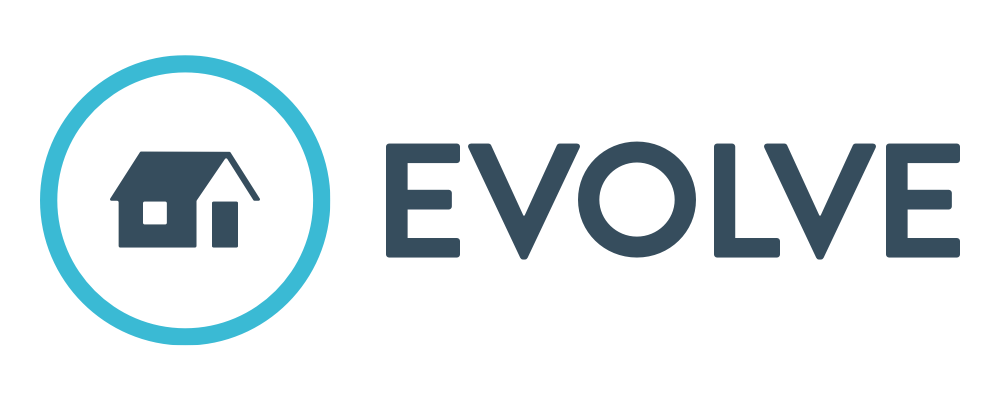Aging in Place in Your State: Virginia and Washington DC
Through Medicaid, the U.S. government aims in part to help people “age in place” across the nation. However, the fact that Medicaid is administered differently in each state — including “Medicaid waiver” programs that may involve private companies — means that benefits vary enormously.
Some states — particularly those who have undergone full Medicaid expansion — offer more benefits, and to more classes of people, while other states’ programs are more sparse.
But there’s something available in every state, and wherever Evolve can bring families, contractors, and relevant families together, we’re ready to help. We’re highlighting programs that offer help with home modification in two states (or, this week, one state and one district!) per month until benefits for all 50 states are explained. This month, we look at services in Washington, D.C., and Virginia.
First, though, some Medicaid reminders. In general, Medicaid will pay for nursing home or similar care for people who meet income and asset qualifications. And in a more recent development, Medicaid also may pay for home modifications and ongoing care for people who want to continue to live at home, particularly if that costs less than a nursing home.
Applicants obtain at-home Medicaid benefits through “Medicaid waivers,” also sometimes called Home and Community-Based Services (HCBS) waivers, waiver-funded services, etc. There are a few commonalities among these programs: most require that the person receiving benefits needs the level of care provided by a nursing home or other facility, or that the person needs help managing the basics of daily living. In addition, most have set limits on income and countable assets (though a home does not typically count as an asset if the patient is living in it).
Finally, many states’ Medicaid programs do pay for home modifications that “accommodate the challenges associated with aging or disability.” Medicaid planners or other professionals can help families manage assets to help their loved one qualify for benefits.
Now, let’s see what’s available in Washington, D.C., and its neighbor, Virginia.
Washington, D.C.
The District of Columbia’s Department of Aging and Community Living runs a program, Safe at Home, that provides “safety adaptations in and around the homes of qualifying seniors and adults with disabilities.”
The program pays for “preventive adaptations” and lists examples like handrail and grab bar installation, furniture risers, and bathroom modifications — all adaptations that reduce the risk of falls and help people more safely accomplish necessities of daily living.
In addition, Safe at Home offers a program in which eligible senior and disabled residents receive a free private security camera to “help deter crime and assist law enforcement with investigations.”
To qualify for the program, D.C. residents must be 60 or older (or, if disabled, 18 or older) and either own or rent a property used as a primary residence. Applicants also must have an annual household income at or below 80% of Area Median Income (AMI).
Currently, the program will pay 100% of modification and security costs for qualifying one-person households with annual income of $68,000 or less; two-person households with income of $77,700 or less; three-person households with income of $87,400 or less, and four-person households with income of $97,050 or less.
People with higher incomes may still qualify to have either half or 25% of the cost of home modifications paid for by the Safe at Home program, making it worthwhile to have a conversation with program administrators.
For more information, visit https://dcoa.dc.gov/safe-home or call (202) 724-5626.
Virginia
Evolve has been honored to help many Virginians improve their houses — and, therefore, their quality of life and their ability to stay at home longer. One goal Virginia’s Medicaid waiver program, called Commonwealth Coordinated Care Plus or CCC+, is to help people age in place rather than moving to a nursing home or other facility.
People who are aged 65 and older — or people with disabilities of any age — who meet certain income limits are eligible for the CCC+ waiver, and it includes provisions for providing “assistive technology” and “environmental modifications” to improve a person’s ability to perform activities of daily living.
The program also allows coordination between a client’s Medicaid and Medicare benefits and lets clients choose their own local service providers — an area in which Evolve is highly experienced and can recommend competent, well-vetted contractors to perform needed work.
CCC+ requires people accessing its services to meet an income limit of no more than 300 percent of the Federal Benefit rate, as well as no more than $2,000 in countable assets or resources. However, many assets are “non-countable” in this calculation, meaning they are exempt from the program’s calculations. These assets include a primary home valued at $585,000 or less, that home’s furnishings and its inhabitants’ personal effects, and a car.
Even if a person’s assets are still above this limit, they may be able to qualify for CCC+, according to payingforseniorcare.com. For example, people with high medical bills might qualify under a “medically needy pathway.” A professional Medicaid planner may be able to suggest other pathways to CCC+ qualification and to warn against practices like dumping assets at below their value, which can also disqualify a person from accessing Medicaid waiver services for a period of time.
For more information, visit the state’s Department of Medical Assistance Services’ CCC+ web site at http://www.dmas.virginia.gov/#/cccplus.

